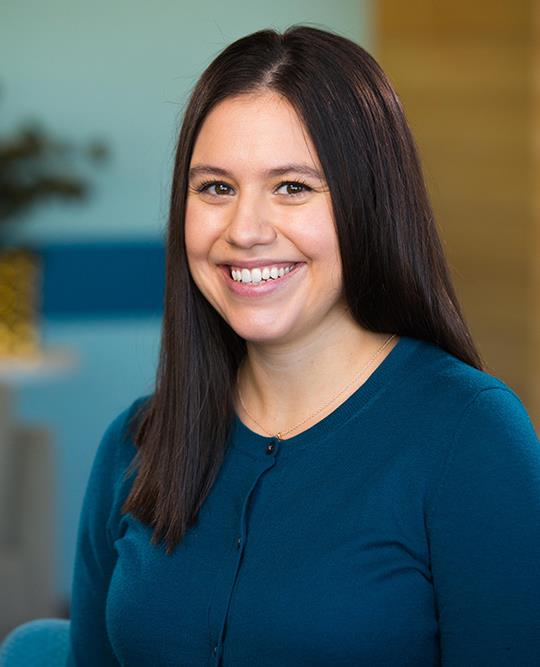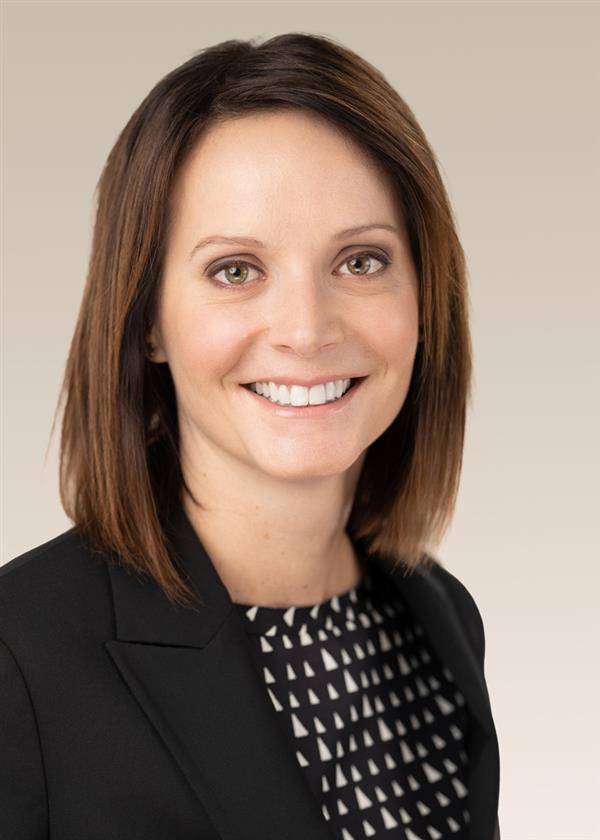- Doctors & Departments
-
Conditions & Advice
- Overview
- Conditions and Symptoms
- Symptom Checker
- Parent Resources
- The Connection Journey
- Calm A Crying Baby
- Sports Articles
- Dosage Tables
- Baby Guide
-
Your Visit
- Overview
- Prepare for Your Visit
- Your Overnight Stay
- Send a Cheer Card
- Family and Patient Resources
- Patient Cost Estimate
- Insurance and Financial Resources
- Online Bill Pay
- Medical Records
- Policies and Procedures
- We Ask Because We Care
Click to find the locations nearest youFind locations by region
See all locations -
Community
- Overview
- Addressing the Youth Mental Health Crisis
- Calendar of Events
- Child Health Advocacy
- Community Health
- Community Partners
- Corporate Relations
- Global Health
- Patient Advocacy
- Patient Stories
- Pediatric Affiliations
- Support Children’s Colorado
- Specialty Outreach Clinics
Your Support Matters
Upcoming Events
Child Life 101
Wednesday, June 12, 2024Join us to learn about the work of a child life specialist, including...
-
Research & Innovation
- Overview
- Pediatric Clinical Trials
- Q: Pediatric Health Advances
- Discoveries and Milestones
- Training and Internships
- Academic Affiliation
- Investigator Resources
- Funding Opportunities
- Center For Innovation
- Support Our Research
- Research Areas

It starts with a Q:
For the latest cutting-edge research, innovative collaborations and remarkable discoveries in child health, read stories from across all our areas of study in Q: Advances and Answers in Pediatric Health.


Gynecology
Polycystic Ovary Syndrome (PCOS)
We specialize in the big things, the small things and everything in between.

What is polycystic ovary syndrome (PCOS)?
Polycystic ovary syndrome (PCOS) is a health issue that can affect women and teens of reproductive age. This condition occurs when females have extra testosterone (a male hormone) in their body. The increased testosterone affects the menstrual cycle, hair growth, skin, weight and the ability to have children.
Despite its name, PCOS doesn’t create cysts on the ovaries. A cyst is a growth or collection of fluid that is treated very differently. The name of the condition instead refers to the cyst-like appearance that the ovary has. An ovary can take on a cyst-like appearance when someone does not ovulate regularly. Ovarian cysts occur due to different causes.
What causes polycystic ovary syndrome (PCOS)?
PCOS occurs when testosterone levels are higher than typical for females. Some of the reasons for higher testosterone levels can be complex and researchers continue to explore the various causes of higher testosterone levels. Doctors and researchers have linked PCOS to genetic factors (factors inherited from parents) as well as weight gain. More than half of those with PCOS have family members with either PCOS or type 2 diabetes.
New research suggests that many with PCOS are sensitive to insulin, which is called insulin resistance. Genetic factors can make the ovaries more sensitive to insulin, which causes them to produce more testosterone.
When weight gain is a cause of PCOS
For teens and young women who are overweight, decreased physical activity often contributes to weight gain, which increases the amount of insulin in the body. As a result, the ovaries release more testosterone. The extra testosterone causes the physical symptoms of PCOS, like excess hair growth on the face and body.
When genetic factors are the cause of PCOS
In women who are not overweight, doctors believe that the ovaries make too much testosterone due to genetic factors.
In all women with PCOS, the ovaries function differently. Typically, once a month, the ovaries make a follicle (where an egg grows). As the follicle grows, it makes hormones and then it releases an egg. This is commonly referred to as ovulation.
However, the ovary in a woman with PCOS makes many small follicles instead of one big one. The follicle looks like a cyst on an ultrasound and gives us the name “polycystic ovaries.” Although the follicles are harmless, they create an imbalance in hormone levels and affect ovulation. As a result, periods become irregular or stop altogether.
Who gets polycystic ovary syndrome (PCOS)?
Genetics do play a role in causing PCOS, but the condition is also caused by weight gain and other factors that we have not yet discovered.
How common is PCOS?
About 5% to 10% of all women have PCOS.
What other conditions can PCOS be associated with?
Other conditions besides PCOS are linked to the hormones that cause higher levels of insulin and androgens (a group of hormones that are typically higher in males), and this can affect the entire body. Once we diagnose someone with PCOS, we also recommend they be tested for pre-diabetes, fatty liver disease and high cholesterol. PCOS can also be associated with mood issues like depression, anxiety and sleep problems.
What are the signs and symptoms of polycystic ovary syndrome (PCOS)?
Some symptoms of PCOS are very noticeable and others are not quite as obvious. Sometimes teens keep the less obvious symptoms hidden because they are embarrassed to discuss them with parents and caregivers. We understand this at Children’s Hospital Colorado, which is why our Pediatric and Adolescent Gynecology team takes extra time to listen to you or your child when providing care for them and offer a safe and friendly environment in which they feel comfortable sharing.
Signs and symptoms commonly associated with PCOS
- Fewer than eight periods per year
- Not starting periods by age 15
- Weight gain
- Thick, dark hair in places where only men tend to grow hair – including the upper lip, chin, sideburn area, chest and belly
- Hair loss on the top of the head or around the forehead
- Severe acne on the face, back or chest
- Dark skin on the back of the neck, in the armpits or at the waist
How do we diagnose polycystic ovary syndrome (PCOS)?
PCOS is a complex condition to diagnose and explain because it affects everyone differently. Sometimes, if the signs and symptoms are severe, we can diagnose you or your child based on the symptoms alone. However, when this is not the case, we make a PCOS diagnosis by confirming both the following:
- Irregular periods due to irregular ovulation: This can mean skipped periods, no periods at all or periods that come more often than every three weeks.
- Hyperandrogenism: This means that a person has acne or hirsutism (extra hair on their face and body). If they do not have this sign, we can also make a PCOS diagnosis by testing for high levels of androgen (usually the hormone testosterone) with a blood test.
If a blood test appears to be inaccurate and we cannot confirm a PCOS diagnosis, we must rule-out other causes of irregular periods. Thyroid hormone, prolactin (a hormone needed for making breast milk) and adrenal gland hormone problems produce similar symptoms, so we may order testing for these conditions as well. We rarely order a pelvic ultrasound of the ovaries as it is not indicated in teens, and we also don’t need to perform a pelvic exam. We prefer to diagnose PCOS in teens with a physical exam and laboratory findings.
Why choose Children's Hospital Colorado to test for PCOS?
Children's Colorado has the only multidisciplinary adolescent PCOS Clinic in the region. Doctors from different areas of medicine all work together in one clinic to provide you or your child with the most accurate and efficient care.
The specialists involved in the clinic include:
- Endocrinologists: doctors who manage weight gain and diabetes risk
- Gynecologists: doctors who manage irregular periods and other reproductive issues
- Dermatologists: doctors who can help with acne and unwanted hair growth
- Psychologists: doctors who can help with the mental stress of dealing with the condition
- Lifestyle experts: specialists to help with nutrition and exercise
What to expect from polycystic ovary syndrome (PCOS) testing
Blood test results generally take 1 to 2 weeks. The only discomfort is from a quick needle-stick to draw the blood.
How do we treat polycystic ovary syndrome (PCOS)?
We have three main goals when treating PCOS:
- Keep the lining of the uterus healthy to prevent heavy and irregular periods, as well as other problems
- Reduce cosmetic signs such as acne or excess hair growth
- Screen for health issues related to PCOS, including high blood pressure, fatty liver disease, high cholesterol, diabetes, sleep disorders and depression
At Children's Colorado, our gynecologists provide patients with different treatment options for PCOS, including healthy lifestyle changes that teens can manage on their own. However, when lifestyle changes aren't enough, we can also prescribe medication that can be helpful.
Lifestyle changes
For those who are overweight, or who are not overweight but are not exercising, the most important treatment is making lifestyle changes in diet and exercise. A 5% to 7% reduction of total body weight can improve periods in many teens with PCOS. Patients and their families using this treatment method have access to lifestyle specialists in our multidisciplinary clinic to help make these changes.
Medicinal options
Our experts will discuss which medicines might be best suited for you or your child.
Birth control pills
For girls who have irregular periods, severe hair growth, acne or those who are sexually active, birth control pills can help.
These pills work by decreasing the amount of free testosterone in the body. Regular periods may start within the first month. It’s normal to have some irregular bleeding at first, but this will improve with time. It usually takes 3 months for acne to clear up and 6 months for decreases in hair growth.
Metformin
Metformin helps girls who are overweight and have high insulin levels.
This medication can lower insulin levels and help the body use insulin more effectively. In 6 to 12 months, Metformin can help control periods, clear up acne and reduce hair growth. The most common side effect is nausea (upset stomach) but patients generally tolerate the drug well. Metformin improves the health of the ovaries and makes it easier to get pregnant. All young women who are sexually active should use birth control while taking Metformin.
Learn more about Metformin:
Provera
Girls take this progesterone-only pill for 10 days to cause a period. It’s best for teens who have not had a period in more than 3 to 6 months.
Spironolactone
Spironolactone blocks the action of testosterone. This medication minimizes hair growth and acne in 6 to 12 months. Taking birth control while on spironolactone is suggested due to the risks of birth defects while taking this medication.
Learn more about Spironolactone:
Laser hair removal
Girls with light skin tone and dark hair growth often seek laser hair removal.
The dermatologist in our multidisciplinary clinic can discuss laser hair removal, if desired.
Rogaine
This over-the-counter product blocks the hair follicle from "seeing" testosterone and slows hair loss.
It's used for balding and the loss of hair at the front of the scalp. It takes 3 to 9 months to work and you can buy it at drug stores or grocery stores.
Vaniqa
Vaniqa is a prescription cream that can decrease hair growth. Hair growth slows only while using the cream. It does not change hair growth over time.
Long-acting, progestin-only methods
Both the intrauterine device (IUD), Mirena, and the under-the-skin implant, Nexplanon, provide a steady, low-dose of progestin. Progestin is a hormonal medication that keeps the lining of the uterus healthy and reduces menstrual bleeding. The IUD works for 5 years and the implant works for 3 years. We can remove either method at any time.
Why choose Children's Colorado for polycystic ovary syndrome (PCOS) care?
The experts in the Department of Pediatric and Adolescent Gynecology place a strong emphasis on communicating with patients in a caring and sensitive way, whether you are a teen coming or the parent of a child we’re treating. We recognize that the teenage years can be a difficult time in a young woman's life and struggling with irregular periods and obesity as a result of PCOS can be very challenging. We not only provide expert medical treatment and considerate care but we can also help with the added stress that PCOS can cause.
Although PCOS is a common condition, the diagnosis and management of adolescents with PCOS is very different from adults. It requires the unique expertise and medical training in pediatric healthcare that all our doctors have. By combining the efforts of health professionals from different departments like gynecology, endocrinology, dermatology, psychology, lifestyle medicine and nutrition, we can help you or your child effectively manage this condition and move on to a healthier, happier life.
The multidisciplinary PCOS Clinic at Children's Colorado provides you or your child direct access to all these medical specialists at one location to ensure the best care possible and provide treatment tailored for you or your child’s individual needs.
When someone has PCOS, they don’t ovulate each month (the process of the ovaries releasing an egg). Without regular ovulation, there may be no periods, skipped periods, irregular periods or very heavy and long bleeding. For people who have irregular periods, we recommend treatment to prevent excessive bleeding and keep the lining of the uterus healthy.
Treatment to help manage periods with PCOS
You have many options for managing periods with PCOS. All the treatments contain progestin, which keeps the lining of the uterus thin and protects it from future problems. The best treatment for you or your child will depend on what several factors, including:
- Is acne an issue?
- Do you have extra hair on the face and body, or thinning hair on the head?
- Is there any issue with taking a medication each day?
- When someone is using hormonal therapy, the lining of the uterus stays thin and healthy. Unlike when not on hormonal therapy, it’s very safe to have fewer periods or none at all. Would an option that means fewer or no menstrual periods be better?
- What else is important about keeping the uterus healthy?
Learn more about options for managing periods with PCOS and what treatments can help with acne, extra body or facial hair and thinning hair:
More information about polycystic ovary syndrome (PCOS) is available from the following resources:
The Office of Women’s Health is a branch of the U.S. Department of Health and Human Services that coordinates women's health efforts and addresses critical women's health issues by informing and advancing government policies, educating health care professionals and consumers, and supporting innovative programs.
Download this information on polycystic ovary syndrome (PCOS):
Next steps
-
Would you like to learn more about us?
Learn more about the Gynecology department -
Are you ready to schedule an appointment?
Schedule an appointment -
Do you have questions about your child’s condition?
720-777-2667
Get to know our pediatric experts.

Stephen Scott, MD
Ob/Gyn Obstetrics & Gynecology

Veronica Alaniz, MD
Ob/Gyn Obstetrics & Gynecology



 720-777-0123
720-777-0123




